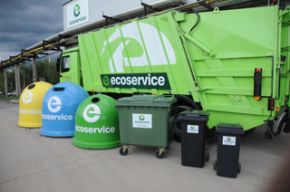Ecology, EU – Baltic States, Lithuania, Markets and Companies
International Internet Magazine. Baltic States news & analytics
Sunday, 28.12.2025, 11:39
Lithuania recycled just 30% waste in 2014
 Print version
Print version |
|---|
Based on the national recycling plan, at least 45% of communal waste will have to be recycled or otherwise used in 2016. Daiva Skrupskeliene, Executive Director of Ecoservice, the largest waste management company, says that in order to fulfil this goal it is necessary to invest in improving the quality of waste management.
"Landfilling remains the cheapest way to treat waste until we use effective economic waste management methods. Ecoservice devotes every effort for waste sorting and recycling to become a priority that would help solve many environmental problems," said the director.
"For comparison, the Scandinavian countries collect and recycle nearly 90% of waste, while in Lithuania the number is threefold lower," Skrupskeliene said.
The need to utilise and recycle waste grows every year parallel to the growing supply of products in shops. Lithuanian waste recycling companies have significantly higher capacity compared to the amount of waste they currently receive. Thus it is important to use the existing resources for recycling.
Ecoservice transfers sorted secondary raw materials to three major Lithuanian recycling companies – Kauno Stiklas, Repro-pet and Klaipedos Kartonas.
Annual amount of glass waste in Lithuania reaches approximately 80,000 tonnes. Glass manufacturer Kauno Stiklas recycles and returns to circulation around 30,000 tonnes of coloured glass waste.
Based on statistical data, annual plastic waste per capita stands at approximately 30 kg in Lithuania. Most of it comes from packaging used by manufacturers because of its durability, flexibility and versatility. Nearly 8% of non-renewable oil resources are used for production of plastics from primary raw materials.
Paper (paperboard) is recycled the most of all types of packaging. For example, Germany produces nearly 60% of new paper from scrap of paper. Lithuanian company Klaipedos Kartonas annually produces nearly 105,000 tonnes of new paper from 115,000 tonnes of paper and paperboard waste.
According to Ecoservice director, due to the growth of markets where secondary raw materials can be applied, Lithuania can boost packaging waste collection and recycling volumes but needs to make full use of the possibilities.








 «The Baltic Course» Is Sold and Stays in Business!
«The Baltic Course» Is Sold and Stays in Business!

